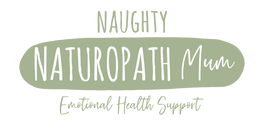
Is My Whole Family Neurodivergent?
Is My Whole Family Neurodivergent?
When our daughter was diagnosed with ADHD in Year 5, so many things suddenly made sense. I started learning about ADHD—what it can look like in girls, why certain things felt harder—and I quietly noticed familiar patterns in myself. I didn’t feel I needed a diagnosis at the time; I was 'managing'.
Then perimenopause arrived. My focus wobbled, the mental load felt much heavier, keeping all my plates spinning got a lot harder and sometimes I felt like I was losing my mind (and my memory!) I decided to get a bit more clarity and support. At 47, I was diagnosed with ADHD—and medication, together with the supports we already used as a family, helped enormously.
A few weeks ago our 13-year-old son—who’s always been anxious—was diagnosed with ADHD too. Understanding the “why” behind his anxiety has been a relief for him and for us. With the right supports, the difference in his confidence and day-to-day regulation has been really noticeable.
And yes… we all suspect my husband is ADHD-wired as well. He doesn’t feel he needs a diagnosis or extra support at this stage (which was exactly how I felt—until perimenopause shuffled the deck!). But it has had me thinking a couple of things...
1. why do possible neurodivergent men seem unwilling to get a diagnosis?
2. How many of us are in 100% neurodivergent families because we unknowingly vibed with a frequency that matched our own? (I go into this a bit more later!)

Polling My Instagram Family, here are the results:
Who is neurospicy in your family?
33% — Just the kid/s
67% — All of us
Who is neurospicy in your family? Poll 2
25% — No one
9% — Me
66% — Me and kid/s
Do you suspect someone in your family might be?
8% — Me
17% — Kid/s
26% — Partner
50% — At least a couple of us
If you suspect an undiagnosed partner, do you think they’d seek a diagnosis?
23% — Yes
47% — No
31% — Maybe
So yep, lots of families discover more than one of them is neurodivergent once they start learning the signs and I was really interested in the undiagnosed partner stat answers....
ADHD in Australian families—clear, simple facts
- About 1 in 15 children in Australia live with ADHD (roughly 6–8%).
- About 1 in 20 adults live with ADHD (roughly 3–5%).
- ADHD tends to run in families—heritability is around 70–80%. If one person has ADHD, it’s common to see traits in parents, siblings or children.
These numbers aren’t about labels—they’re about understanding patterns so we can offer the right support at the right time.
Energy, frequency & finding “your people”
I often talk about us as energy beings—each with our own frequency and field. I’ve noticed (in life and in clinic) that people on similar wavelengths tend to find each other. Many neurodivergent folks discover they’ve “accidentally” gathered neurodivergent partners and friends—the resonance is real. There’s shared pace, shared intensity, shared creativity… and shared relief when you finally have language for it.
Why flower essences made sense—long before we knew
It makes me smile that I was drawn to flower essence therapy years before any diagnoses. I could feel the shifts in my own energy and behaviour, then saw the same gentle support for my kids as they grew. In a way, we were supporting our wiring long before we had the words for it.
What helps our family now
- Clarity & language: diagnosis (when wanted), understanding traits, and sharing a common vocabulary.
- Layered support: the right school/work adjustments, routine tweaks, coaching/therapy where helpful, and—when appropriate—medication.
-
Emotional regulation: our Mind-Full Pack (my three core blends) supports the feelings side of neurodivergence—racing thoughts, overwhelm, focus wobbles, sensory overload, fear and feeling 'oversensitive'. It’s “as well as”, not “instead of”, and it continues to help even alongside ADHD medication.
If you’re wondering about your own family
- You’re not alone—many families discover more than one person is neurodivergent.
- Needing a diagnosis is personal; for some it’s empowering, for others it’s unnecessary. Support can still be tailored either way.
- Start with compassion. Notice patterns. Adjust environments. Add layered supports.
- Celebrate strengths: creativity, intuition, hyperfocus bursts, humour, resilience and big empathy.
Final thoughts
If you’re reading this and you suspect you, your partner, or your children might be neurodivergent — take a breath. Look at the patterns, the frequency, the emotional undercurrents. Reach out. Ask questions. Get curious. Because when one person in the family is diagnosed, it often opens the door for gentle discovery in others. And when you begin to talk about it — the wiring, the rhythm, the energy — the whole family can shift from surviving to thriving.
Yours in Health,
Alisha x
Related reads
- How I’m Managing My Late Diagnosis ADHD
- What Masking, ADHD and My Late Diagnosis Looked Like for Me
- My 20 Go-To Rituals & Tips as a Peri Woman with ADHD, Teenagers and All the Things
This story shares our lived experience and general information only. It isn’t medical advice. Please chat with a qualified health professional for personalised support.
Is My Whole Family Neurodivergent?
Is My Whole Family Neurodivergent?
When our daughter was diagnosed with ADHD in Year 5, so many things suddenly made sense. I started learning about ADHD—what it can look like in girls, why certain things felt harder—and I quietly noticed familiar patterns in myself. I didn’t feel I needed a diagnosis at the time; I was 'managing'.
Then perimenopause arrived. My focus wobbled, the mental load felt much heavier, keeping all my plates spinning got a lot harder and sometimes I felt like I was losing my mind (and my memory!) I decided to get a bit more clarity and support. At 47, I was diagnosed with ADHD—and medication, together with the supports we already used as a family, helped enormously.
A few weeks ago our 13-year-old son—who’s always been anxious—was diagnosed with ADHD too. Understanding the “why” behind his anxiety has been a relief for him and for us. With the right supports, the difference in his confidence and day-to-day regulation has been really noticeable.
And yes… we all suspect my husband is ADHD-wired as well. He doesn’t feel he needs a diagnosis or extra support at this stage (which was exactly how I felt—until perimenopause shuffled the deck!). But it has had me thinking a couple of things...
1. why do possible neurodivergent men seem unwilling to get a diagnosis?
2. How many of us are in 100% neurodivergent families because we unknowingly vibed with a frequency that matched our own? (I go into this a bit more later!)

Polling My Instagram Family, here are the results:
Who is neurospicy in your family?
33% — Just the kid/s
67% — All of us
Who is neurospicy in your family? Poll 2
25% — No one
9% — Me
66% — Me and kid/s
Do you suspect someone in your family might be?
8% — Me
17% — Kid/s
26% — Partner
50% — At least a couple of us
If you suspect an undiagnosed partner, do you think they’d seek a diagnosis?
23% — Yes
47% — No
31% — Maybe
So yep, lots of families discover more than one of them is neurodivergent once they start learning the signs and I was really interested in the undiagnosed partner stat answers....
ADHD in Australian families—clear, simple facts
- About 1 in 15 children in Australia live with ADHD (roughly 6–8%).
- About 1 in 20 adults live with ADHD (roughly 3–5%).
- ADHD tends to run in families—heritability is around 70–80%. If one person has ADHD, it’s common to see traits in parents, siblings or children.
These numbers aren’t about labels—they’re about understanding patterns so we can offer the right support at the right time.
Energy, frequency & finding “your people”
I often talk about us as energy beings—each with our own frequency and field. I’ve noticed (in life and in clinic) that people on similar wavelengths tend to find each other. Many neurodivergent folks discover they’ve “accidentally” gathered neurodivergent partners and friends—the resonance is real. There’s shared pace, shared intensity, shared creativity… and shared relief when you finally have language for it.
Why flower essences made sense—long before we knew
It makes me smile that I was drawn to flower essence therapy years before any diagnoses. I could feel the shifts in my own energy and behaviour, then saw the same gentle support for my kids as they grew. In a way, we were supporting our wiring long before we had the words for it.
What helps our family now
- Clarity & language: diagnosis (when wanted), understanding traits, and sharing a common vocabulary.
- Layered support: the right school/work adjustments, routine tweaks, coaching/therapy where helpful, and—when appropriate—medication.
-
Emotional regulation: our Mind-Full Pack (my three core blends) supports the feelings side of neurodivergence—racing thoughts, overwhelm, focus wobbles, sensory overload, fear and feeling 'oversensitive'. It’s “as well as”, not “instead of”, and it continues to help even alongside ADHD medication.
If you’re wondering about your own family
- You’re not alone—many families discover more than one person is neurodivergent.
- Needing a diagnosis is personal; for some it’s empowering, for others it’s unnecessary. Support can still be tailored either way.
- Start with compassion. Notice patterns. Adjust environments. Add layered supports.
- Celebrate strengths: creativity, intuition, hyperfocus bursts, humour, resilience and big empathy.
Final thoughts
If you’re reading this and you suspect you, your partner, or your children might be neurodivergent — take a breath. Look at the patterns, the frequency, the emotional undercurrents. Reach out. Ask questions. Get curious. Because when one person in the family is diagnosed, it often opens the door for gentle discovery in others. And when you begin to talk about it — the wiring, the rhythm, the energy — the whole family can shift from surviving to thriving.
Yours in Health,
Alisha x
Related reads
- How I’m Managing My Late Diagnosis ADHD
- What Masking, ADHD and My Late Diagnosis Looked Like for Me
- My 20 Go-To Rituals & Tips as a Peri Woman with ADHD, Teenagers and All the Things
This story shares our lived experience and general information only. It isn’t medical advice. Please chat with a qualified health professional for personalised support.








Leave a comment